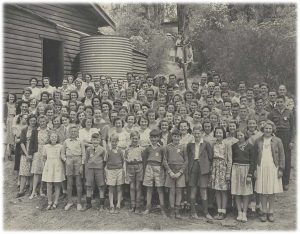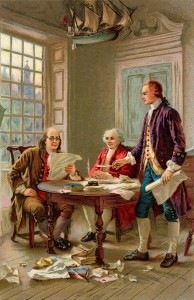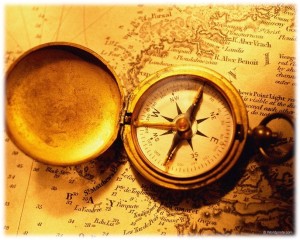2 CHRONICLES 34: Next Generation’s Legacy

I recently visited my mum’s hometown to find that the area was a hotbed of religious revival during the 1950s. The war was over and families, with traditional values, were beginning to thrive again through spiritual awareness and honest living. But things seemed to change significantly in the 1960s. While the Cultural Revolution was underway in the east, for example, the West was experiencing the sexual revolution, the effects of which seemed to irreversibly change what we once had.
Looking back, I was the odd one out at school coming from a single-parent home. A generation later, my children say they’re in a minority with two parents at home and still together. Speaking to our daughter about the corporate behaviour and cultural values of the 1950s, she asked if we could ever pull it back to what it was. But once the horse is bolted it’s too late. We may be at a point now of no return. It may be up to individuals to create their own legacy to pass on to their own family.[a]
Today’s chapter begins about 50 years before a historic (and at one time, influential) nation was about to completely imploded. King Josiah of Israel was only eight years old when he became king. [v1] Like James of Scotland – King James I – who also had the right people around him to nurture him from a young age, Josiah was the last good king of Israel. [v2] At 16, he began to seek the God of his ancestors and, if you’re thinking that it’s old-fashioned to want the culture and values of the 1950s, Josiah’s heart was set on a season 500+ years before! [v3]
 This was a serious matter. If anything, Josiah knew (from the “fiery furnace experience” of his own Grandfather and Father) that right choices could save him the grief of those who had gone before him. In addition, having received a bad legacy from them, handing down a good legacy to the next generation (that’s been refined like gold), is vital.[b]
This was a serious matter. If anything, Josiah knew (from the “fiery furnace experience” of his own Grandfather and Father) that right choices could save him the grief of those who had gone before him. In addition, having received a bad legacy from them, handing down a good legacy to the next generation (that’s been refined like gold), is vital.[b]
Josiah’s Great Grandfather was King Hezekiah, one of seven good kings in all of Israel’s history. But Josiah’s Grandfather came to faith in the Creator God late in life, as a result of being captured by the Babylonians and imprisoned but later released in answer to prayer.[c] Josiah’s advisors were alive at the time, and would have seen his Grandfather’s change of heart and mind, and his attempt at reforms before he died.
After seeking out the Creator God at 16, it took Josiah four years, to find his way – what it was that his Maker created him to do. Twenty years old was considered military age in Israel[d], the age of Priestly duty[e], and the age of accountability.[f] So by the time he was twenty, Josiah had concluded that it was time to return to the way it was “in the good old days”, and that his Maker deserved more than a half-hearted commitment…
Risking his own life, Josiah set about on a radical reform to get rid of everything that was dragging his country down. [v3-7] Pushing aside natural fear, after his father’s assassination, Josiah not only worked in his own region of influence (the Southern Kingdom of Israel), but he also moved about in what had been the Northern Kingdom of Israel, now overrun by the Assyrians for 100 years.[g]
It took six years to make physical changes throughout his country – working first on the behaviour of his people. At 26 – twelve years after his own spiritual awakening – Josiah turned his attention to spiritual changes. After his predecessors had allowed their national faith system to fall into disrepair, Josiah had to change the thinking processes of his people – drawing them back to their Maker. [v8-13] Then something truly shocking happened…The High Priest found the Book of Law that had been given to Moses! [v14-18]
 To understand this, it’s like finding the American Declaration of Independence after it had been misplaced somewhere in the White House! How on earth could it have gone missing in the first place and why weren’t alarm bells ringing? This is the Declaration of Independence! This is the one document from the Founding Fathers that means everything to everyone in the country for every generation. Which group in charge at the time lost it – what on earth were they thinking! Worse still is the question: How on earth could it possibly “go missing” inside the only building in the country that means everything to everyone!
To understand this, it’s like finding the American Declaration of Independence after it had been misplaced somewhere in the White House! How on earth could it have gone missing in the first place and why weren’t alarm bells ringing? This is the Declaration of Independence! This is the one document from the Founding Fathers that means everything to everyone in the country for every generation. Which group in charge at the time lost it – what on earth were they thinking! Worse still is the question: How on earth could it possibly “go missing” inside the only building in the country that means everything to everyone!
The Book of Law given by Moses would have been the first five books of our Jewish Scriptures and to lose it is like trying to fly an A380 without a manual. It’s like losing the hard drive for the main computer in the British Parliament Houses with all the files for our British Laws going missing. It’s like the family Bible ending up on a dusty shelf in some room in the house and no-one’s read it in years because no-one knows where it is.
Once their Maker’s Handbook was read (and even just a portion was enough), Josiah understood for the first time who His Maker was and what His Maker required of His Children. Most importantly, Josiah could see clearly what had gone wrong. The benchmark was finally set, and the first thing clearly noticeable was just how far off the mark they were.
How vital it is to check and recheck any thinking or behaviour that is a change to what my parents and grandparents handed to me, before they go into my next generation’s legacy. Likewise, our corporate thinking and behaviour today is a social and cultural legacy handed to our next generation. But if we don’t consult the guidebook we’ll never know how far off course we are, or how difficult any course correction has now become.
It took William Wilberforce, for example, 40 years of blood sweat and tears just to get the slave trade abolished. But we have slaves in every city now: slaving to make ends meet; slaves to addictions; slaves to debt, poverty, and unbridled want; slaves to circumstances from which there’s no escape. When much of this is self-inflicted from bad choices, what’s the legacy handed down from the majority, for the next generation?
Josiah started with three things. He gave time to reading his Maker’s Handbook. He acknowledged His immediate predicament, based on what he’d read. He then started asking questions with anyone who had a known relationship with the Creator God. [v19-21] In the absence of any “men of God” around at the time, the Priests found a prophetess – a “woman of God” – who could give a “word of knowledge”. [v22-29]
We might not have access to a prophet today, but we do still have “men and women of God” who are not too difficult to find.  In addition, we have God’s Holy Spirit to help us understand His Word.[h] The only questions remaining are: Have we lost our Maker’s Handbook, or misplaced it in the “not necessary” box? Have we read it enough to acknowledged how far off the radar we are?[i] And are we making changes to our thinking and behaviour to bring ourselves back into the centre of God’s Will for our lives?[j]
In addition, we have God’s Holy Spirit to help us understand His Word.[h] The only questions remaining are: Have we lost our Maker’s Handbook, or misplaced it in the “not necessary” box? Have we read it enough to acknowledged how far off the radar we are?[i] And are we making changes to our thinking and behaviour to bring ourselves back into the centre of God’s Will for our lives?[j]
Significant course correction for a nation will require a revival, and radical change from the top down. [v29-33] But course correction for our family and the community in which we now live, starts with me.
CLICK to return to today’s “Daily Breadcrumbs”
[a] Revelation 22:11
[b] 2 Chronicles 33:10-25
[c] 2 Chronicles 33:10-20
[d] Numbers c1 and 26:2
[e] Numbers 8:24
[f] Numbers 14:29; 32:11f (See also Exodus 30:14; 38:26)
[g] 2 Kings 17:3-6
[h] Isaiah 44:3; Ezekiel 39:29 and Joel 2:28-29
[i] Romans 3:9-20 (See also: Psalm 5:9; 14:1-3; 36:1; 53:1-3; 140:3; Ecclesiastes 7:20 & Isaiah 59:7-8)
[j] Jeremiah 5:3; Ezekiel 18:32 & Matthew 3:2